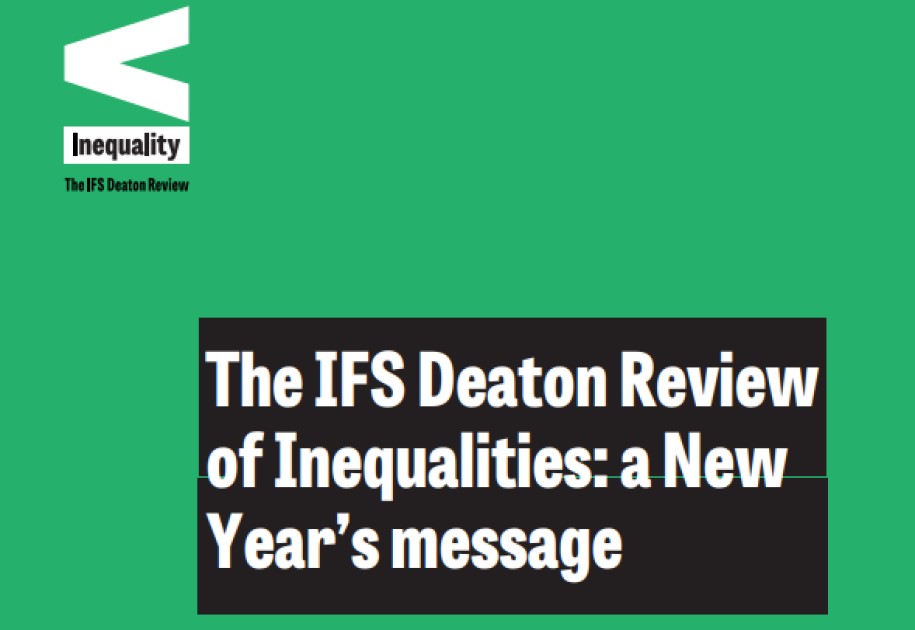The IFS Deaton Review of Inequalities: a New Year’s message
In 2021 the Review will be publishing material from its major evidence-gathering phase, which will span topics from public attitudes towards inequality to inequalities in income, health and political inclusion, to inequalities by geography, gender and ethnicity, to the role of firms, trade, migration, labour market institutions, tax and transfer policy and much more besides. The aim will be to use this evidence to build conclusions about how inequalities should most effectively be tackled.
As we embark on the new year, the Review has taken the opportunity to reflect on what 2020 told us about where we stand. Here are its key findings:
- The Covid crisis has exacerbated inequalities between the high- and low-paid and between graduates and non-graduates.
- The crisis has hit the self-employed and others in insecure and non-traditional forms of employment especially hard.
- Educational inequalities will almost certainly have been exacerbated by the crisis.
- Between March and July, mortality rates from Covid-19 were twice as high in the most deprived areas as in the least deprived.
- The crisis has had very different impacts on different ethnic groups.
- Through 2020, pensioners have on average reported becoming financially better off, whilst the young have borne the brunt of job and income loss.







